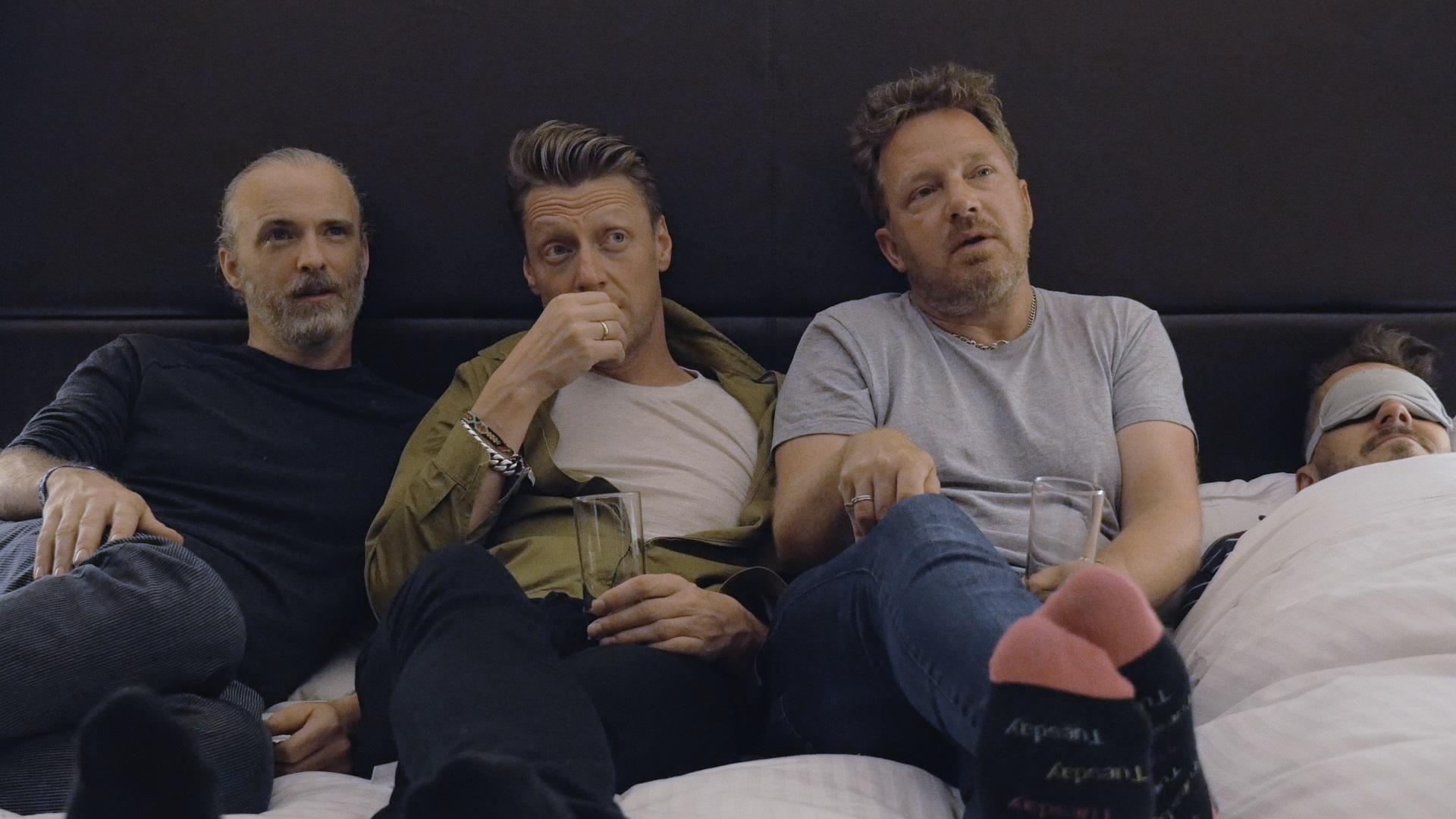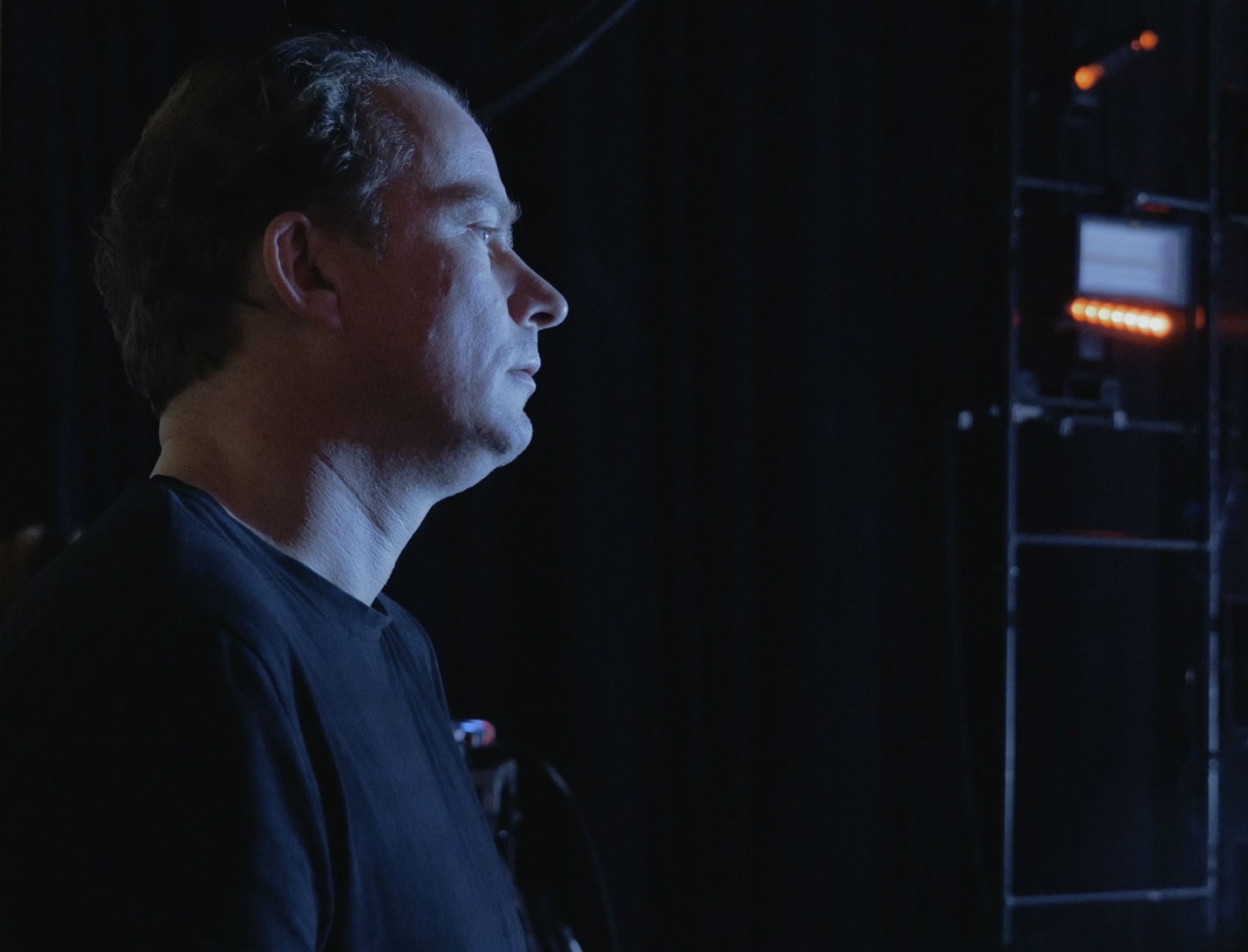The man who changed his mind: Why Fran Healy invited a journalist who hated Travis to make a film about them
Nice but dull? In his debut work as a film director, Healy chose to face up to the unfashionable reputation of his band by inviting music critic, and Travis sceptic, Wyndham Wallace on tour

“Everyone always talks about this ‘nice’ thing, and it’s almost like a curse,” says Fran Healy on the misconceptions which have plagued his band, Travis. “It’s almost like they’re saying nice but dim, you know? Nice but boring. And we’re totally not like that, or at least I don’t think we’re that nice. In rock ’n’ roll, though, ‘nice’ is a bad word.”
Had Travis ever wanted to remain cool, then getting famous was the last thing they should have done. The Glasgow-formed group’s 1997 debut album Good Feeling established them as a breezy glam-pop band and earned them one of the mainstream credibility accolades of their time, an invitation to support Oasis. Yet the follow-up, 1999’s The Man Who, revealed an altogether more winsome side – the band became hugely, ubiquitously successful, with tracks like “Why Does It Always Rain on Me?” and “Driftwood” seemingly never-ending fixtures on daytime radio playlists.
From this point things changed, and they experienced the kind of inverse effect which Ed Sheeran or Oasis themselves might be able to relate to: the more successful the band got, the less serious attention critics seemed to pay them, and to an extent they became a byword for all that was mainstream and dull.

Yet the group endured; their popularity tailed off in the 2000s, but after taking a few years off from recording, they returned to more modestly sustainable success this decade.
Yet the feelings which many – particularly critics – may have about Travis have never entirely gone away, and with his debut work as a film director, Healy has chosen to face them head-on. Almost Fashionable: A Film About Travis debuted at Cannes this year and receives its British premiere at the Edinburgh International Film Festival this weekend.
Healy specifically chose its narrator, the music journalist Wyndham Wallace, because of his antipathy towards the band.
“I met Wyndham in Berlin a few years ago and the first thing he said to me off the bat was, ‘I’m really not a fan of your band’,” says Healy. “‘OK, nice to meet you too!’ But I’ve gotten to know Wyndham, and I know he’s not terribly fond of us, but he’s a nice guy and a good journalist. I thought it would be more interesting to make a documentary with someone like that than someone who thinks they know us, because I don’t think anyone really does.”
“That wasn’t actually the first thing I said, but it was one of the first 10,” corrects Wallace, regarding what happened the night he and Healy met while out with mutual friends in a Berlin bar five years ago (both lived in the city at the time, although Healy has recently moved to Los Angeles). “He seemed like a nice guy and I didn’t want any problems down the road.”

Wallace has form with intimate portraits of artists; as well as a two-decade career in PR and then journalism for magazines including Uncut, he befriended Lee Hazlewood in the last years of the singer’s life and wrote a memoir of their friendship entitled Lee, Myself and I.
“Projects like this tend to be fairly self-congratulatory, and I think the band wanted to do something a bit different,” says Wallace. “Fran suggested I would be a good person to front it and you can hear at the beginning of the film, because he taped the call, me going, ‘Ha, right, yeah, I guess?’ But who’s going to turn down a free trip to Mexico? Especially a journalist!”
The film involves Wallace shadowing Travis on tour around Mexico for a week, watching them play to thousands of people at a time and meeting frankly unexpected levels of fervour from many young and engaged fans.
It tells the story of the band through frank interviews with each member (Healy, Dougie Payne, Andy Dunlop and Neil Primrose) and thoughtful punditry, but it’s the trade-off between the blind adoration of these fans and Wallace’s own received cynicism which makes Almost Fashionable a genuinely great rock film.

Having worked with his team – cinematographer Cristian Pirlo and editor Sarah Iben – on a film to accompany Travis’ 2016 album Everything at Once, Healy has now created a solid and inspiring film debut proper, which he hopes will make it to television at some point.
Uniquely, it seeks not to bolster the group’s own ego, but to tackle the lazy assumptions which are made about them head-on and to give some sense of what it’s like, as Healy says, to be “sitting in a room with us”. Somewhere along the line it also quietly reaffirms their credentials as songwriters of real heart and ability.
“Even our most successful songs weren’t written to make money,” says Healy. “They were written because I got chucked, and I was desperately weeping into my guitar and feeling sorry for myself. Of course I felt hurt by some of the things that have been said about us, f****n’ hell: these are songs that were, that are, really personal to me, and you don’t write those songs unless they mean something.
“But then I realised that it’s like professional wrestling, or pantomime. Journalists are only doing your job, we’re just another one of the 800 records you have to listen to in a year and not get paid well enough to take time over. I took a peek behind the curtain on this film and I realised that it’s not personal, I got it. It’s like parliament, the heated way they debate, but behind the scenes it’s totally different. It’s an age-old dance, and not something to be taken seriously.”
Wallace’s conversion, such as it was, feels well-earned by the simple honesty of Travis’s music and their relationship with their fans. “There’s a nice shot of me early on in the film, standing by the stage, taking a large swig of beer and looking utterly bored,” he says. “By the end I’m far more at ease. I mean, I got swept up by the passion of the audiences, and when you’re confronted by that you have to reassess your own feelings.
“I have a line towards the end of the movie, that ‘I’ve spent so long trying to be a critic that I’ve forgotten how to be a fan’. Cliché or not, the film is a journey, certainly in terms of my involvement.”
“In many ways, journalists and people in bands are similar,” says Healy. “You get into something because you’re a fan, but if it becomes your job you move more towards it and you forget the fragrance of being a fan, that lovely thing that going to gigs used to mean. I think we can all be guilty, even in bands, of forgetting that.”
Healy explains that any future film projects will be dealt with the same way he writes songs; he’ll only do it if he feels he really has something to say. As for Wallace, his main ambition for the film is just to “make people ask themselves why they form their opinions about music, and to try and stop them being quite so belligerent in the belief that those opinions are superior to everyone else’s. I think that’s something that can be applied on a much wider scale right now, beyond music and beyond culture. We’ve become very entrenched in the rightness of our own beliefs and lost a degree of empathy.
“Our opinions are just opinions. If anyone can watch the movie, go through a similar journey to the one I did, then good for them. I just want people to be a bit kinder.”
‘Almost Fashionable: A Film About Travis’ is at Edinburgh International Film Festival, 29 and 30 June, and then at selected film festivals (travisonline.com)
Join our commenting forum
Join thought-provoking conversations, follow other Independent readers and see their replies
Comments
Bookmark popover
Removed from bookmarks